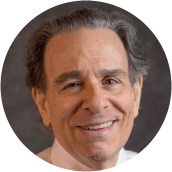Improving lawyer performance through personality science
The world’s most successful law firms and legal departments turn to LawyerBrain to bring out the best in their people.

WELCOME
Welcome to our website. We’re glad you’re curious about how we can help you. LawyerBrain is a management consulting firm founded by Dr. Larry Richard that exclusively serves the legal profession. At LawyerBrain, we use our understanding of what makes lawyers tick to help our clients tackle their most important people issues: Leadership. Talent Management. Motivation. Managing Change. Well-Being. Engagement.
Find Out MoreLawyerBrain Services
How can we help?

Get the help you need fast
Questions clients ask
LawyerBrain LLC is a consulting firm that specializes in helping the most successful large law firms and corporate legal departments around the world. Our clients commonly ask us questions that we can help you with instantly.
Read All FAQ’sTrusted by the best
Join the hundreds of law firms and legal departments that we’ve helped
Contact LawyerBrainKind words

01 / 14
“I have seen Larry make presentations at several conferences. He's amazing. He has a unique ability to engage the audience in activities that stimulate their desire to learn more. He's a world-class expert in his field.”

02 / 14
“I know Dr. Larry in many capacities – as a former colleague, as someone whom my company has hired to train lawyers across the globe, as a presenter, and my favorite - as my mentor of many years. Larry is the most knowledgeable person I’ve ever seen or heard on personality characteristics, especially as applied to lawyers. These insights, which he so generously shares, informs his work in areas such as organizational development, team and group dynamics, and coaching. I practically never attend a conference in the legal industry where someone doesn’t quote something they learned from Larry – a testament to the enormous impact he has had on our industry.”

03 / 14
“Dr. Richard has become an indispensable resource to me as a law firm leader and our firm as whole. Dr. Richard understands the challenges high performing partners face in their practices and in their lives. In his coaching assignments, I am confident that he has significantly improved the lives of several of our partners, their families and friends through the application of his level of understanding and the quality of his skills.”

04 / 14
“I’ve known Larry for well over a decade and have worked with him on a variety of matters, all of which were incredibly helpful to my own professional development as well as that of the teams I’ve led. We’ve run seminars, offsites, offered coaching and personality testing to dozens of lawyers and compliance professionals, all of whom benefited from Larry’s unparalleled insight into lawyers, what drives them and how they can best advance their careers. Most importantly, Larry brings an excellent sense of humor to his work, which makes it all very fun!”

05 / 14
“Larry is clearly the leading psychologist in the large scale practice of law. That’s because he delivers pragmatic counsel to law firm and law department leaders, based on his deep understanding of human psychology, his decades of experience with the challenges and opportunities of leading lawyers, and his ability to apply his knowledge in a down-to-earth, understandable way. I’ve worked with Larry for more than twenty years. There is no one like him in the world of law.”

06 / 14
“When I think of leading sustainable change, creating better law firms and supporting better lawyer lives I think instantly of Larry. No one has done more to accelerate our understanding of the lawyer personality than he has. I utilize his research and coaching daily.”

07 / 14
“In our joint work with clients, Larry has impressed me with his ability to convince skeptical lawyers of the need for change. His science-based understanding of the personalities of lawyers is unparalleled, and he delivers his messages in compelling, memorable ways.”

08 / 14
“Larry’s unique insight into the personality of lawyers has been very important to my education as a managing partner and his knowledge in the area of positive psychology has made an enormous contribution to our firm.”

09 / 14
“I have followed and incorporated the work of Dr. Larry Richard throughout my career in the legal industry. His insights and findings have been incorporated into virtually every execution plan I have designed and led. Nothing happens in a law firm without understanding and navigating the unique profile of lawyers and nobody is better at this than Larry. His work, always valuable, is needed now more than ever. You simply cannot navigate impactful change in law firms without the perspective of the work of Dr. Larry Richard.”

10 / 14
“Dr. Larry Richard is a great presenter, and has a terrific sense of humor too. We have used him for specific assignments and he has presented at several of our retreats and meetings. I highly recommend him.”

11 / 14
“Dr. Richard deftly applies his insights on the lawyer personality to timeless and timely challenges in the industry. He is a go-to resource on engagement, retention, leader development, and much more.”

12 / 14
“As a firm, we know that the well-being of our people is crucial to our success. Dr. Larry has helped our leadership team understand what makes the “lawyer personality” unique and introduced us to helpful practices to address the impacts of change and uncertainty while bringing out the best in our people.”

13 / 14
“Larry is a leader of leaders in the area of law firm practice. He has designed an innovative leadership development program that is serving to develop new skills in professionals that are already highly skilled.”

14 / 14
“Larry possesses a unique ability to understand lawyers and the context in which they operate, enabling him to unlock terrific potential in the areas of performance and leadership.”
Downloads
Free resources
Access articles, and other useful resources, for free.
News & Opinion

